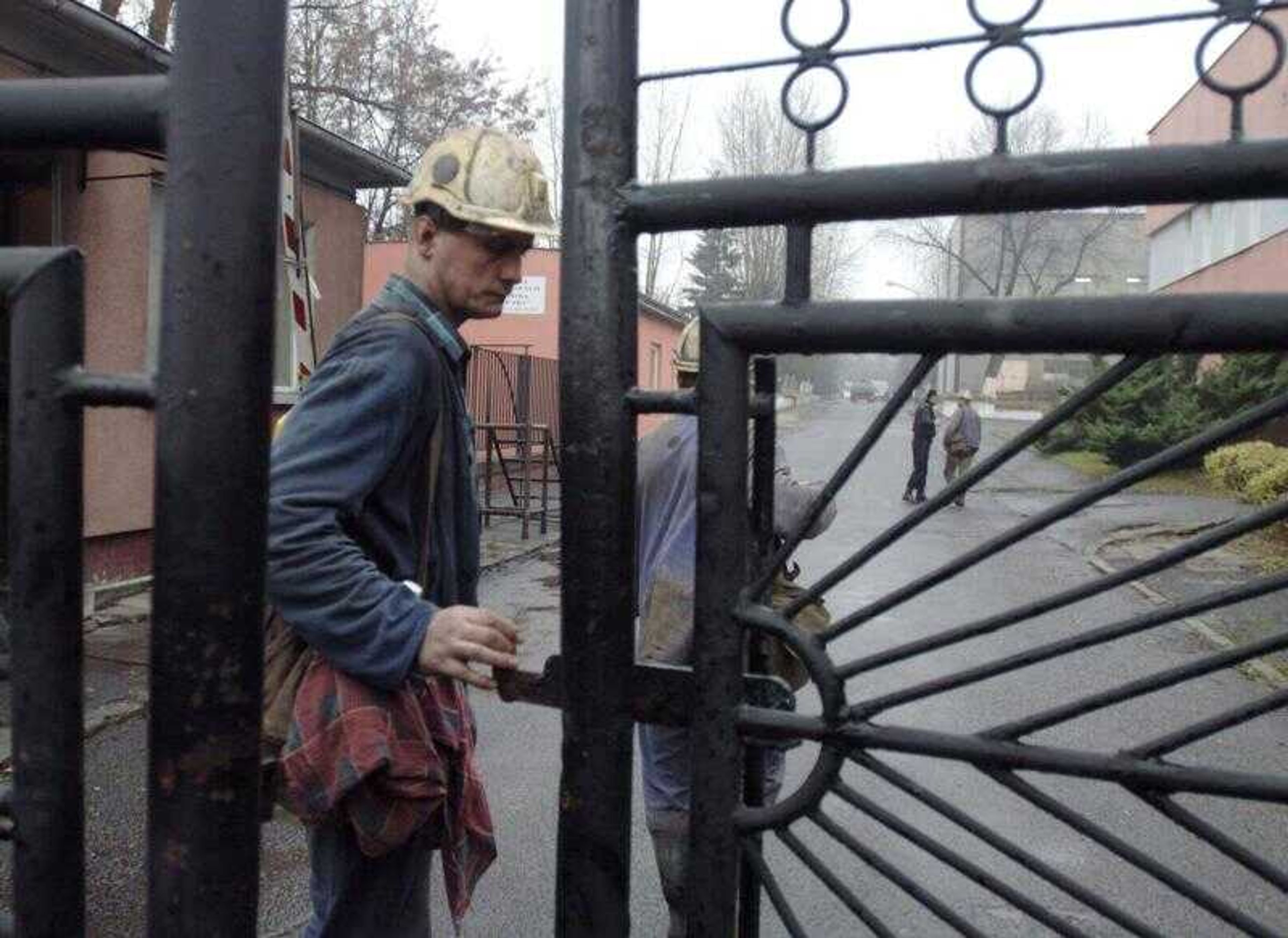Bodies of all 17 trapped men found after Poland coal mine explosion
RUDA SLASKA, Poland -- The bodies of all 17 men trapped underground after a mine explosion in southern Poland have been found, bringing the death toll to 23 in the country's worst mining disaster in three decades, the mining company said Thursday. President Lech Kaczynski declared three days of mourning after the last of the victims were found following an arduous 38-hour search more than 3,000 feet below ground...
RUDA SLASKA, Poland -- The bodies of all 17 men trapped underground after a mine explosion in southern Poland have been found, bringing the death toll to 23 in the country's worst mining disaster in three decades, the mining company said Thursday.
President Lech Kaczynski declared three days of mourning after the last of the victims were found following an arduous 38-hour search more than 3,000 feet below ground.
The men, aged between 21 and 59, were killed by a methane gas explosion Tuesday at the Halemba coal mine in the economically depressed region of Silesia in southern Poland. There were no survivors, and rescue officials said all probably perished in the initial blast.
"This brings to an end this very sad day," Zbigniew Madej, spokesman for the state-run Coal Co., said at the scene. "Nobody has a sense of relief, but rather a great weight on their heart."
Mourners, including many victims' families, prayed and lit candles at an impromptu shrine at the entrance to the mine complex. Many gathered around a list of the victims posted by the company.
"I came to support my mother," said Mariola Pietkiewicz, crying as she explained her brother was among the dead. "I'm the only one left for her."
Jan Gawra, one of 220 miners involved in the rescue attempt, emerged from the mines after digging through the night, his face and clothes black with coal dust. He said he had worked for 22 years with some of the men whose bodies he helped recover.
"I didn't want to meet with them in this way," said Gawra with a deep breath. "We knew who was down there but we couldn't tell who was who. They were too burned for that."
Condolences arrived from world leaders including German Chancellor Angela Merkel and Pope Benedict XVI.
"The pope entrusts the souls of the dead to God's mercy, asking him to accept the offer of their toil and their life," the message from the Vatican said.
Delayed search
The search had to be put on hold for much of Wednesday when teams encountered high concentrations of methane gas that they feared could cause a second explosion.
It resumed shortly before midnight and the rescue teams found the bodies after digging through hundreds of feet of rubble for more than three hours, Madej said.
The methane gas explosion also would have produced temperatures of up to 1,800 degrees, Madej said.
"Rescuers were working in extremely difficult conditions," said Zygmunt Goldstein, a main adviser to a mine rescue center based in nearby Bytom. "We had methane, we had poisonous gases, high temperatures, high humidity, water threats, structural changes after the explosion. Everything that can happen down there."
It may take some time to determine whether the miners were killed in the initial blast or afterward, rescue officials said.
Kaczynski, who surveyed the site on Wednesday and met with grieving family members, has pledged a full investigation while the government has promised a review of safety at all Polish mines.
The miners were attempting to retrieve $23 million worth of equipment from a shaft that was closed in March because of dangerously high gas concentrations.
Labor unions complain that a lack of investment and massive layoffs in recent years have resulted in falling safety standards at the nation's mines.
The nearly 50-year-old Halemba mine, in the heart of the Silesia industrial region, is one of the oldest in Poland, and has a record of serious accidents. In 1990, 19 miners were killed and 20 injured in a gas explosion at the mine. In 1991, five miners were killed in a cave-in.
Poland's worst mining accidents were in 1974 and 1979, when explosions killed 34 miners each at the Czechowice-Dziedzice in Silesia and the Dymitrow mine in Bytom.
Connect with the Southeast Missourian Newsroom:
For corrections to this story or other insights for the editor, click here. To submit a letter to the editor, click here. To learn about the Southeast Missourian’s AI Policy, click here.










